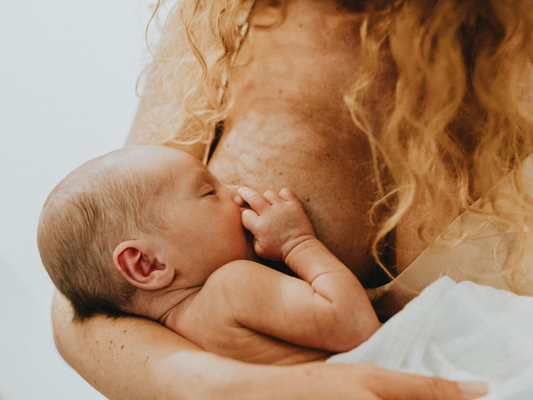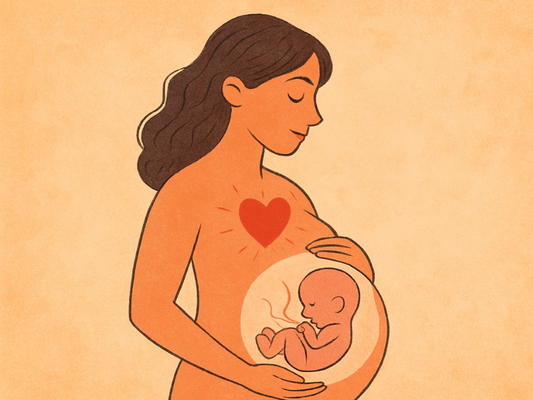
The Hidden Costs of Having a Baby—And Why Fewer Families Are Taking the Leap
The Financial Realities of Starting a Family
Starting a family is one of life’s most meaningful and joyful decisions—but without thoughtful planning, the financial responsibilities can quickly feel overwhelming. From prenatal care to the baby’s first year, the cumulative costs often catch new parents off guard. On average, the total expense associated with pregnancy, childbirth, and postpartum care is nearly $19,000, with out-of-pocket costs averaging around $3,000 for those covered by large group health plans. (Source: Kaiser Permanente Business)
These figures are prompting many to reconsider or delay parenthood altogether. At MotherBees, we recognize these challenges and are committed to providing resources and guidance to help families navigate this complex journey with confidence and clarity.
Pregnancy Through Postpartum: What It Really Costs
Pregnancy is often treated as a “medical” journey, involving a wide range of services—many of which carry hidden or underestimated costs. Prenatal care typically includes monthly doctor visits (increasing to weekly during the final trimester), ultrasounds, blood tests, genetic screenings, and prenatal vitamins. These can easily add up to $2,000-$4,000 out-of-pocket, depending on your insurance coverage. According to a 2024 study published by The Cut, the average out-of-pocket cost for pregnancy-related care is $2,655 even with insurance.
Labor and Delivery Tips
Check your insurance early. Call your provider to understand what’s covered for prenatal visits, delivery, and postpartum care. Which care facilities do they cover and not cover is good to know early on. Many insurance companies see pregnancy as a high-risk, so they tend to be a little more strict around pregnancy.
Ask for an itemized estimate from your hospital or birthing center. This gives you a clear picture of any future potential charges.
Consider alternatives. Home births or birth center deliveries can be significantly more affordable, typically ranging from $6,500 to $10,000, compared to hospital births—where a vaginal delivery averages around $14,768 and a cesarean section around $26,280.
Postpartum expenses include follow-up care, lactation consultations, mental health support, pelvic floor therapy, and nutritional recovery. Not to mention postpartum doulas, night nurses, and extra childcare. These often aren’t fully covered by insurance. Investing in postpartum meal services, such as MotherBees’ nutrient-dense meal partners, can support healing but come at an additional cost.
Postpartum Care for Mom
Here’s a sample fee chart based on average prices in a high-cost area like Los Angeles. Fees may vary depending on your geographic location, provider experience, and service packages. Be sure to research, interview, and ask thoughtful questions to ensure each provider is the right fit for your postpartum needs.
Estimated Fee Ranges
| Service | Estimated Cost |
|---|---|
| Midwife (Full Care Package) | $6,500 – $10,000 |
| Birth Doula | $3,500 – $10,000 |
| Postpartum Doula | $2,500 – $7,500 |
| Postpartum Massage Therapist | $150 – $275 per session |
| Night Nurse | $650 – $1,000 per night |
| Lactation Consultant | $150 – $250 per session |
| Newborn Sleep Consultant | $150 – $275 per session |
| Craniosacral Therapy | $175 – $250 per session |
| Acupuncturist (Postpartum Support) | $75 – $250 per session |
Raising a Baby in the First Year: Monthly Cost Estimates
After birth, recurring monthly costs begin immediately. Diapers (cloth or disposables), formula or breastfeeding supplies, clothing, toys, healthcare, and sleep essentials are just the start. A 2024 WebMD article estimates the average monthly baby expense at $1,500 to $2,500.
Breakdown of Monthly Essentials
| Category | Estimated Monthly Cost |
|---|---|
| Diapers and Wipes | $65 – $150 |
| Formula or Breastfeeding Support | $50 – $650 (includes pumps & lactation consults) |
| Clothing and Gear | $250 – $600 |
| Childcare | $750 – $1,500 (part-time to full-time) |
| Medical Visits and Insurance | $150 – $650 |
Money-Saving Tips
Buy or use second-hand gear like strollers, cribs, and clothes from trusted sources.
Use cloth diapers if possible; while the upfront cost is higher, long-term savings are substantial. It’s better for the environment too.
Create a baby registry focused on practical essentials rather than luxury items. Focus on nourishment, warmth, and comfort.
Planning ahead with a simple monthly budget can help avoid surprise expenses. Consider using our Mindful Spending Plan to track baby-related purchases and recurring needs.
The Cost Journey: From Conception to Baby’s First Birthday
Understanding the full arc of expenses from preconception through baby’s first birthday can help families prepare wisely. Here’s a typical stage-by-stage breakdown:
Stage 1: Preconception
Fertility testing or treatments
Health screenings
Stage 2: Pregnancy
Prenatal checkups
Ultrasounds and tests
Maternity clothing
Supplements and nutrition
Stage 3: Birth
Hospital or birthing center costs
Doula or midwife services
Labor supplies (birthing ball, TENS unit)
Stage 4: Postpartum
Therapy and lactation consultants
Postpartum acupuncture, massages, etc
Stage 5: Baby’s First Year
Feeding supplies (bottles, sterilizers)
Co-sleeper bassinet, crib, high chair, car seat, etc.
Why Birth Rates Are Declining: Financial & Cultural Factors
According to the U.S. Census Bureau, the birth rate in America has declined steadily since 2007. In 2020, it reached a record low of 1.64 births per woman, well below the replacement rate of 2.1.
Key Reasons
Rising housing, healthcare, and childcare costs
Delayed marriages and career prioritization
Lack of paid parental leave and universal childcare support
A 2024 Harvard Gazette article notes that many Millennials and Gen Zers feel priced out of parenthood. Fertility rates have not rebounded since the pandemic, largely due to economic uncertainty and lack of systemic support.
What You Can Do
Advocate for better parental leave policies in your workplace or state.
Join local parenting groups to share child care resources and emotional support.
Prioritize financial wellness before trying to conceive—even small monthly savings can build confidence.
What Families Need: Solutions, Support, and Real Conversations
Solving the cost crisis of parenthood requires more than frugal spending. It demands systemic change and community collaboration. For instance, the Magnolia Mother’s Trust gives $1,000 monthly to low-income moms in Mississippi, showing that financial security can improve maternal and infant outcomes.
Supportive Solutions
Policy shifts: Advocating for universal childcare, extended paid leave, and tax relief
Community care: Meal trains, co-op childcare, and mothering circles
Education and planning: Using tools like the Mindful Spending Plan to prepare ahead
The Mindful Spending Plan: Free Spreadsheet for Every Stage of Motherhood
One of the best ways to ease the financial burden of parenthood is to plan intentionally. That’s why MotherBees created the Mindful Spending Plan—a free, customizable spreadsheet designed to guide families through each stage of motherhood. Whether you're saving for prenatal care, postpartum meals, or baby's first-year essentials, this tool helps you map expenses, set priorities, and stay organized.
Key Features of the Mindful Spending Plan
Stage-by-stage budgeting: Plan your expenses from preconception to postpartum and beyond.
Monthly trackers: Visualize recurring costs and track where your money goes.
Savings goals: Set realistic goals to reduce financial stress during big life transitions.
You can download the plan for free on our website and start customizing it right away. It’s not just about numbers—it’s about building confidence, reducing anxiety, and making space for joy as you grow your family.
Parenthood with Confidence
While the financial aspects of starting a family are undeniably significant, thorough planning and access to supportive resources can make the journey more manageable. By understanding potential expenses, exploring available assistance programs, and utilizing tools like the Mindful Spending Plan, prospective parents can approach this life-changing experience with greater confidence and clarity.
Remember, at MotherBees, we’re here to support you every step of the way.
Starting a family takes planning, vision, immense love—and the flexibility to adapt as things unfold. With the right support, knowledge, and preparation, that joy becomes a sustainable reality.
We see you. We support you. We believe in your journey.











